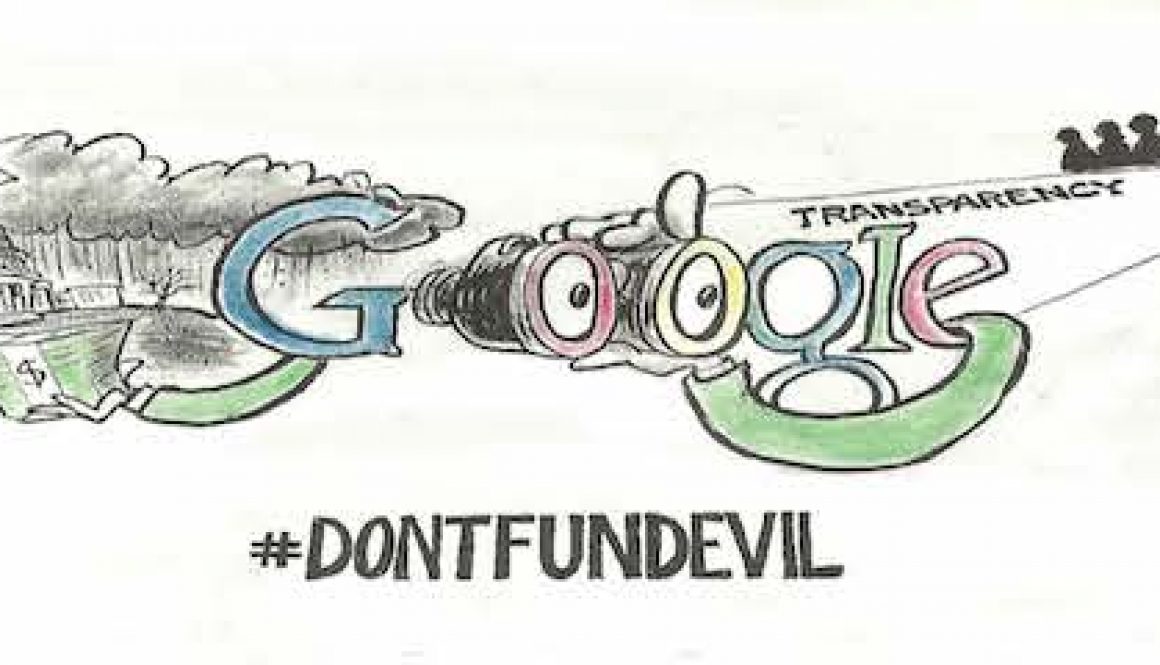Google Becoming One of the Most Technologically Invasive and Politically Powerful Companies
Most of us use Google products on a daily basis and are familiar with the company’s powerful email and Internet search services. But these days, there is a lot more to Google’s technological operations — and they come with myriad new ways to collect our information. Now the company that used Street View cars to collect unsuspecting people’s information, and received the Federal Trade Commission’s largest civil penalty ever for misleadingly tracking Safari users, is reaching new levels of political power.
A new Public Citizen report, “Mission Creep-y,” explores Google’s accruing power, both in terms of personal data collection, and federal and state government influence, raising the question of whether it could become too powerful to be held accountable.
Key findings about Google’s growing political power:
- Over the first three quarters of 2014, Google ranked first among all corporations in lobbying spending, according to OpenSecrets.org, and is on pace to spend $18.2 million on federal lobbying this year. In fact, it has spent $1 million more on lobbying than PhRMA, the powerful trade association of the pharmaceutical industry.
- Since 2012, no company has spent more money on federal lobbying than Google.
- Of 102 lobbyists the company has hired or retained in 2014, 81 previously held government jobs. Meanwhile, a steady stream of Google employees has been appointed to high-ranking government jobs – an indication of the company’s growing influence in national affairs.
- Google’s political action committee (PAC) spent $1.61 million this year, according to Federal Election Commission records. That surpasses, for the first time, PAC expenditures by Wall Street bank Goldman Sachs.
- Google funds about 140 trade associations and other nonprofits across the ideological spectrum – including some working in issue areas relevant to Google’s practices on privacy, political spending, antitrust and more.
Key findings about Google’s information gathering:
- Along with its ongoing development of revolutionary new technologies such as Google Glass and self-driving cars, Google spent more money on acquisitions than Apple Inc., Microsoft Corp., Facebook, Amazon and Yahoo combined in 2012 and 2013. New technologies acquired by Google allow it to collect information from the air, inside the home, people’s bodies, and more.
- Next to Google, according to privacy experts, only the NSA may have more information about more people. Google’s mass collection of information makes it a treasure trove for agencies such as the NSA — to which it is legally bound to satisfy most information requests — and to hackers and rogue employees.
- Google has come under scrutiny from the Federal Trade Commission on several occasions, including racking up the commission’s largest civil penalty ever, $22.5 million, in a settlement over Google bypassing Safari browser settings to track users.
- A recent survey by Survata found that Americans are more concerned about Google’s information-collection practices than those of the U.S. National Security Agency (NSA).
For a company so interested in knowing more about its consumers, Google isn’t very transparent in its methods of gaining political influence. A recent Center for Political Accountability-Zicklin Center report about companies’ political spending transparency showed Google lagging behind many of its biggest technology-sector peers. The company does not meet transparency standards set by fellow technology companies, such as disclosing how much money it gives to outside groups that spend money in elections, using transparent corporate oversight to make political spending decisions, or divulging information about its state lobbying spending.
Even the company’s shareholders have called for it to be more transparent. Executive Chairman Eric Schmidt publicly acknowledged this shareholder opinion in May, and said in October that he did not know the status of efforts to follow up on those concerns, but that “we certainly promised.”
Though Google recently withdrew from the American Legislative Exchange Council (better known by its acronym ALEC) because it said the conservative think tank inhibited action on climate change, the report notes that Google continues to provide unknown amounts of funding to major dark money groups such as the U.S. Chamber of Commerce.
“Google has essentially responded to concerns about its practices by saying, ‘Just trust us,’” said Taylor Lincoln, research director of Public Citizen’s Congress Watch division. “But Google is gaining so much power that regulators may find it difficult to act if it turns out the public’s trust has been misplaced.”
Sign the petition calling on Google to improve its political spending practices by dropping its membership in the dark money behemoth the U.S. Chamber of Commerce.

